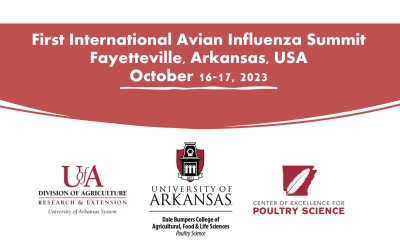Avian influenza and Brazilian poultry production – Current situation and prevention strategies
Authors: Ricardo H. Rauber
GMPC TOP
2023.
vol. 3, Iss. 1
pp:0-14
Doi: https://doi.org/10.51585/gtop.2023.1.0017

Abstract:
Highly Pathogenic Avian Influenza (HPAI), particularly caused by the influenza virus A genus, is a paramount concern for global poultry health. The strains associated with HPAI are known to precipitate mortality rates exceeding 90%. Beyond the immediate and catastrophic impact on poultry, the emergence of HPAI strains disrupts international poultry trade, leading countries to impose trade bans and shake consumer confidence. By September 19th, 2023, Brazil had reported 106 confirmed outbreaks of HPAI. Most of these incidents were linked to wild birds, totaling 103 cases, while backyard chickens accounted for the remaining three. Notably, most of these outbreaks are situated in coastal regions. However, an exception that demanded attention was the HPAI detection in backyard chickens in Bonito, Mato Grosso do Sul. State-wise analysis reveals differential prevalence patterns. São Paulo and Rio Grande do Sul have documented cases far from their primary poultry hubs. In juxtaposition, Espírito Santo's proximity to the outbreak areas heightens its risk profile. The southern broiler-producing regions, which account for a significant 64% of Brazil's total production and a whopping 79% of exports, currently face diminished immediate threats due to their inland geographies. Nevertheless, the episode in Bonito-MS underscores the escalating risks even in regions previously considered low-threat and amplifies the call for perpetual vigilance. Brazil's approach to HPAI defense is structured and well-planned, not a result of hasty improvisation or last-minute measures. It's a result of a long-standing commitment and rigorous planning. The country's legal framework for HPAI prevention has evolved since the 1994 introduction of the National Poultry Health Plan. Successive years saw further tightening of regulations, climaxing with the 2013 National Contingency Plan for Avian Influenza, which underwent revision in 2023. Brazil’s strategy to ward off HPAI is deeply rooted in stringent biosecurity measures. Farms are mandated to erect physical barriers, strictly regulate vehicular and human movement, and uphold rigorous cleaning and disinfection standards. Farm personnel are also trained in and adhere to meticulous personal hygiene protocols. Simultaneously, comprehensive waste management practices are firmly in place. Additionally, the Brazilian government plays a proactive role. Border surveillance, active monitoring of avian populations, and the deployment of passive surveillance within commercial flocks manifest the government's unwavering dedication to the poultry sector. One of Brazil's trump cards against diseases like HPAI is its vertically integrated poultry production model. This modus operandi permits companies and cooperatives to oversee every production stage. Such centralized oversight minimizes financial risks, guarantees consistent quality, and facilitates the swift roll-out of biosecurity directives. Traceability, a cornerstone for rapid disease containment, is inherently assured in this system. The private sector in Brazil not only meets governmental biosecurity standards but frequently surpasses them. It's common to see the integration of extended quarantine durations, intensified disinfection routines, and stringent farm access controls. The commitment to a tiered biosecurity mechanism across diverse poultry production stages is a testament to the industry's intent to ensure a holistic health foundation. Brazil's comprehensive and adaptive approach to HPAI is commendable. The country's strategic alignment between governmental regulations and private sector commitment, especially in the face of recent outbreaks, underscores Brazil's unwavering focus on safeguarding its poultry industry. While the road ahead demands continuous vigilance, Brazil's current strategies and learnings provide valuable insights for global stakeholders.
Keywords:
Brazil, Influenza, HPAI, Poultry, Preventive strategies, Biosecurity
Statistics:
Article Views: 332
PDF Download: 3